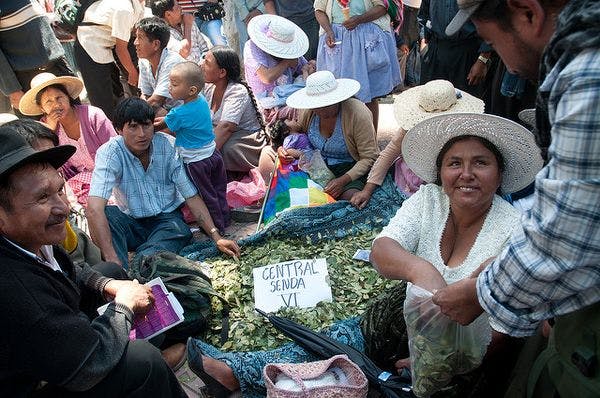Flickr CC Shorizo izo (Hugo Solar)
Una década crucial para el movimiento hacia el fin de la "guerra contra las drogas"
A pesar de los desafíos, los esfuerzos de la sociedad civil hacia la reforma de las políticas de drogas son más fuertes que nunca. Más información, en inglés, está disponible abajo.
By Diego García Sayán
Despite nearly a half-century of destructive and ineffective policy initiatives, the “war on drugs” rages on.
In Afghanistan and Colombia, opium poppy and coca cultivation are at some of the highest levels on record. Traffickers and other high-ranking actors in the illicit markets are as wealthy and powerful as ever. Meanwhile, the already-marginalized people who grow these plants—who are mostly peasants and small-scale farmers—continue to be the ones bearing the weight of criminalization.
The situation in the United States is hardly better. According to the Centers for Disease Control, nearly 72,000 people died because of an overdose in 2017 alone. For perspective, that is a higher death toll than all U.S. military casualties in the Vietnam and Iraq wars, combined. Yet many legislators in places such as Ohio and Maine are still resistant to the kind of public health interventions—such as supervised injection facilities—that have a proven track record of saving lives.
In countries such as Sri Lanka and Bangladesh, meanwhile, policymakers aren’t merely accepting a failed status quo—they’re actually going backward. Following the example set by the Philippines’ “war on drugs,” some nations are responding to policy failure with little more than vicious and deadly brute force.
Discouraging as this backsliding is, it isn’t the whole story. Positive changes are underway in the most unlikely of places. South Africa recently decriminalized the consumption of cannabis at home. Citizen action and grassroots mobilization in the United Kingdom lead to the government legalizing medical marijuana, and a range of countries, such as Ireland and Ghana, are considering the benefits of the decriminalization of drugs following the documented successes of Portugal’s progressive policies.
As the number of human rights abuses in name of the “war on drugs” have risen, so, too, has a robust network of drug policy reform advocates from around the world, all of whom are ready to challenge these human rights violations and push for better, smarter, and more humane solutions.
Over the last decade, the Open Society Global Drug Policy Program and its grantees have proudly supported these brave individuals and civil society groups. And together, we’ve won significant victories for the reform movement—and for the larger project of reducing the role of criminalization in drug control policy as much as possible while simultaneously advancing public safety and health.
In the face of backlash, in other words, the reform community is stronger than ever. And as we look back over the last 10 years of global drug policies, we can see four crucial areas where great strides have been made which the movement can build on in the years to come.
Regiones
Perfiles relacionados
- Harm Reduction International (HRI)
- International Center for Ethnobotanical Education, Research & Service (ICEERS)
- International Drug Policy Consortium (IDPC)
- LBH Masyarakat
- Open Society Foundations (OSF)
- Support. Don't Punish
- Transnational Institute (TNI)
